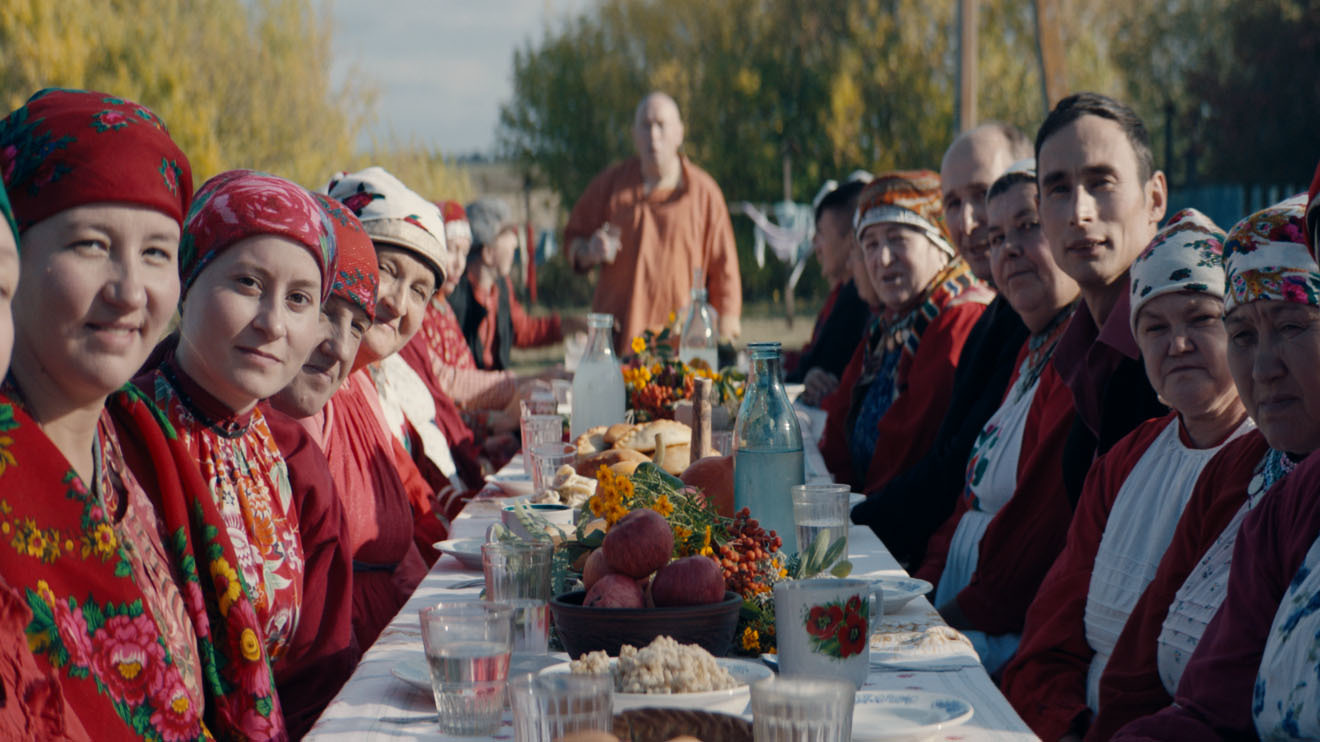The plot of the painting "Mikulai", shown at the Moscow International Film Festival as part of the "Russian Premieres" competition, is based on the melodramatic solo performance of the same name, but with a number of changes in the script.
Some of them were contributed by Timur Bekmambetov - it was he who advised turning the film into a thriller.
As a result, the story sparkled with new colors, and in some places it looks quite frightening - for the time being.
Mikulay (Viktor Sukhorukov) is a resident of a remote Kryashen village.
There is no electricity in it, it is difficult to get to the city: the lack of normal roads and clay soil, which is washed away by rains, interfere with it, “what if a tractor is not a tank will not pass.”
The protagonist lives with his pregnant young wife Nastya (Ekaterina Ageeva), enjoys the respect of his fellow villagers, every night he conducts the ritual of lighting a “beacon” for flying planes with them and creates the impression of a happy person living in an ideal environment for himself.
On one of these nights, Mikulay discovers that the oil for the "lighthouse" has run out.
In the morning, the hero goes to a semi-abandoned machine yard far from the village in order to get hold of a valuable resource, and on the way back a young man (Ivan Dobronravov) catches up with him, introducing himself as Stepan, the son of Mikulai himself and Anfisa (as it turns out later, girls with "lowered social responsibility" , who was popular with local guys and left the village long before the events described).
Shot from the film "Mikulai"
To celebrate, Mikulai first faints, and then brings an unexpected relative to the village, where he begins to introduce him to the locals and family.
Once in the house of the protagonist's parents, Stepan chuckles in surprise: “And how long have you been living like this?”.
At first, this seems to be just a slight disdain of a young city dweller in relation to the village.
But, without spoilers, it is worth clarifying that it is the first half of the tape that is not at all what it seems.
Mikulay brings Stepan to his house, where Nastya reacts extremely negatively to him, confident that her newfound son wants to take her husband to the city from the village.
From this moment on, events begin to develop rapidly (by the standards of a rather measured picture): Stepan’s “settlement” in the house next door, a sudden wedding, the man’s subsequent attempt to escape from the village, leading to nothing - all this holds attention for some time.
Director Ilshat Rakhimbay tried to cover a fairly wide range of topics - the history of the loneliness of an individual, and the real problem of the extinction of villages, and family values, and draw attention to small nationalities, but could not fully realize his plan.
"Mikulai" looks exciting until about the middle, because all the declared points are already being revealed, and the film simply cannot offer new ones.
The fact that the events are unreal becomes obvious too quickly, the escape of the villagers to the cities is an acute problem, but not close to everyone, and the authors did not reveal the theme of the Kryashens at all (except with the help of periodically appearing folk costumes).
With the same success it was possible to replace them with the characteristic attire of almost any nationality of our country, the result would not have changed.
Shot from the film "Mikulai"
Moreover, the last of the possible intrigues associated with Stepan is also “not finished” - it is revealed quickly, tastelessly and disappointingly.
Rare computer graphics look rather poor (however, the budget of the tape is small - 20 million rubles), the entire second half of the tape rests solely on the skill of Sukhorukov - replace him with an actor of a smaller caliber, and the film would crumble into dust, like the village of the protagonist.
The ending is frankly predictable.
Perhaps if the picture had remained just a melodrama, like the performance that formed its basis, the situation would have been saved.
Because Rakhimbai's "psychological ethno-thriller" failed - "There is no life here," Sukhorukov's hero says at the moment of insight and surprisingly accurately characterizes the entire film with one phrase.
The few advantages of "Mikulai" include the picture, good editing and cast - Sukhorukov's colleagues on the site really worked with maximum efficiency.
The reincarnation of the hero Dobronravov from a slightly squeezed city dweller into an angry berserker, tearing off the head of his friend Mikulai with his bare hands, is generally one of the most emotional and vivid scenes.
As well as the final dialogue of the protagonist with Nastya, in which she asks her husband to forgive himself.
Whether these advantages will help Rakhimbay's work to win the love of the mass audience - time will tell.

